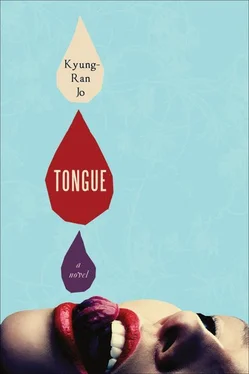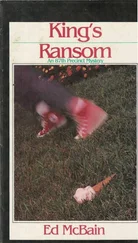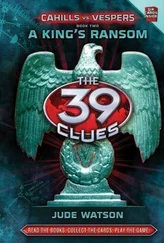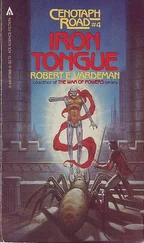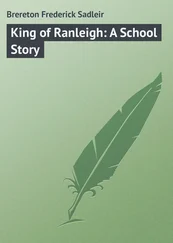I close my eyes and pretend to be asleep. My stop is announced. I open my eyes. The woman is no longer across from me. Neither is the globe, which looked heavy for its size. I manage to slip out just before the doors close. I pause momentarily while climbing the stairs. I can’t recall whether the woman was holding a globe, or a newborn baby swaddled in a colorful blanket, or a lapdog. Was I dozing in the early-morning subway? I keep walking, thinking it would have been better to see someone holding a big, slightly cracked melon instead. At least you can eat a melon. I haven’t been able to fall into deep slumber all spring. When reading a book or drinking herbal tea doesn’t help, I go into the yard and pace, barefoot, watching the sunrise. Now even Paulie isn’t there, Paulie, whose warm tongue used to lick my face.
The gigantic fish is splayed across the butcher block, dripping water. It’s so fresh that I think its eyes will fly open, tail flopping. A century ago the perch wouldn’t have arrived in an ice-filled Styrofoam box but in a clay jar of honey. Tension flits in the air among the six cooks who gather around the fish with their knives. Last month, I decided not to handle fish for a while. I feel warmer than usual and my palms sweat—the worst hands with which to touch fish. I’ve never been this hot before. I don’t know why this is happening. I gaze down at my palms. Is it because I’m completely alone? I shake my head. These thoughts only make my palms warmer. It’ll get better when the seasons change.
It feels like warm—and cold—liquid is seeping out of my body, like juice from cutting a ripe peach. I can’t do anything but wait for time to pass. If you want to pursue something, it means you have desire. There’s something I want to grab firmly with these two hands. I stand in front of the large oven that reflects my face and whisper: The hours I wait with desire will certainly be mysterious .
It’s disappointing that I can’t handle the perch—the tiger of the sea—but I step back. A fish this size has a lot of flesh and allows you to bring out all kinds of flavors. One hand supporting my chin, I glance at Chef, wondering how this one will be prepared. I think of Chef every time I look at a perch, just as I’m reminded of a cow or yellow paprika whenever I see Munju. What do people think when they look at me? Do they associate me with a vegetable or a fish? Chef picks up a knife, slides it along the dorsal fin, and slits the body open. Everyone, even Manager Park, gathers around the fish, curiosity gleaming in their eyes. Chef will carefully divide the body, cheeks, collar, stomach, liver, small intestines, and gills and distribute them to the staff. Then he will tell them to make a dish out of it—homework. This is how Chef uses a perch, as expensive as a whole calf. Another reason you don’t leave Nove once you start cooking here. A few years ago I parboiled the liver of a perch in salted water before stewing it in garlic sauce. Chef’s opinion was that my concoction was fine, but that it didn’t show enough imagination and tasted one-dimensional.
The kitchen becomes busy all of a sudden. While the others work on the perch, I take charge of marinated blue crab for the staff meal. Shellfish live underwater and breathe through their gills, periodically shedding their shells as they grow. The time to get the plumpest and sweetest shellfish is right before they shed. Blue crabs in May are packed with eggs—they don’t taste as good after they lay eggs. Chef makes the soy sauce used for the marinade. Soy sauce is the one condiment I’m not very comfortable using. If Grandmother were still alive, I could learn from her. Grandmother used a pear reduction to satisfy all the need for sweetness in her cooking, and when she made marinated crabs she used pear juice instead of sugar for the soy sauce. Worm-mottled pears, old pears, frozen pears—they all turned into sweet, clear pear reduction when they passed through Grandmother’s hands. Chef believes that a young person can’t handle soy sauce. By the time I learn how to make and handle it, I may no longer be young. My wish is that I will still be in this kitchen.
The darkest soy sauce, like the darkest caviar and olives, is the best. Soy sauce has to be black and have a tongue-seducing aroma, but it can’t be overly viscous and you should take care to use only the appropriate amount. The squirming crabs are piled into a nickel bowl. One even lurches and claws its way to the top. If they were lobsters, we would immediately snip the muscles in their claws. Lobsters, the most belligerent of shellfish, eat each other when they are kept in a confined space. We don’t do anything to the crabs yet, though, because the flavor suffers when a knife touches living crabs. Now I should pour the soy sauce over the crabs. After boiling and cooling the sauce, I dip a finger into the liquid and stick it in my mouth, rolling it around on my tongue. Sour and salty and sweet and profoundly weighty, like when I take a sip of good wine. I pour the sauce over the live crabs. They writhe as if in protest. Now all I have to do is wait until they die, then trim the claws.
ASTRANGE THING HAPPENS on Thursday afternoon. I take a walk down the hill near the Shilla Hotel before dinner service. Suddenly a black flock of pigeons rises up in front of me. Dust and pollen fly into my face, and as I pull my hands out of my pockets to shield my eyes, I see through my fingers a pigeon flying swiftly toward my foot. My foot pauses in midair as the pigeon rushes forward and swoops onto it, swallowing it whole. With no time to regain my balance, I take a tumble in the middle of the street. Rolling on the downward slope, I realize it wasn’t a pigeon but a black plastic bag. But that’s after I’ve already fallen. For a while I lie there on my stomach without moving. I must have broken something, I think. My cheek, which scraped along the sidewalk, starts to burn. Two pedestrians try to help me up. I’m okay, I say, pushing their hands away, thinking, I hope I hurt my ankle, not my wrists. I sit up slowly and flex my wrists. If I hurt my hands, I won’t be able to cook anymore, or even go into the kitchen. I won’t be able to do anything, either at home or at Nove. This has to be more horrific than being alone. My wrists seem fine. I don’t feel any pain. I get up and rotate each of my ankles. They’re fine, too. It’s odd. It was as if someone yanked on my ankles, yet not a single part of me was hurt. I fell only a few seconds ago but it seems like a hallucination. But the black plastic bag that enveloped my left foot and my sore cheek are proof that it wasn’t. It happened in a split second. My foot was held up to take a step, and the black plastic bag, tossed by the wind, fell to the ground as if carefully planned, heading toward my shoe with its opening facing me. The scene remains in my head as if I pressed the pause button. It happened in the blink of an eye but I couldn’t avoid it.
I’m glad I didn’t get hurt, but I’m dogged by an ominous feeling that I’m the butt of an unpleasant joke. That night I receive two complaints about my food. Once it’s too salty and the other time the food isn’t seasoned at all. What’s wrong with you today? Manager Park says unpleasantly. I don’t go with the group to eat truffle dishes at the InterContinental. Recently the hotel has become the center of talk among gourmets because it imported twenty kilograms of fresh truffles from France for the first time ever. It’s a large amount, worth around forty million won. I asked the head manager of the hotel, who is close to Chef, to get me a truffle, even if it’s as small as a clove of garlic. Not believing that I tripped over a black plastic bag, I cluck as if someone is watching. It was stupid to think that the bag was a pigeon. If there were two of me, I would pat the shoulder of the other me in sympathy. It’s probably because you haven’t been sleeping well . When you’re alone for a long time, you learn how to think of yourself as separate from even yourself.
Читать дальше
